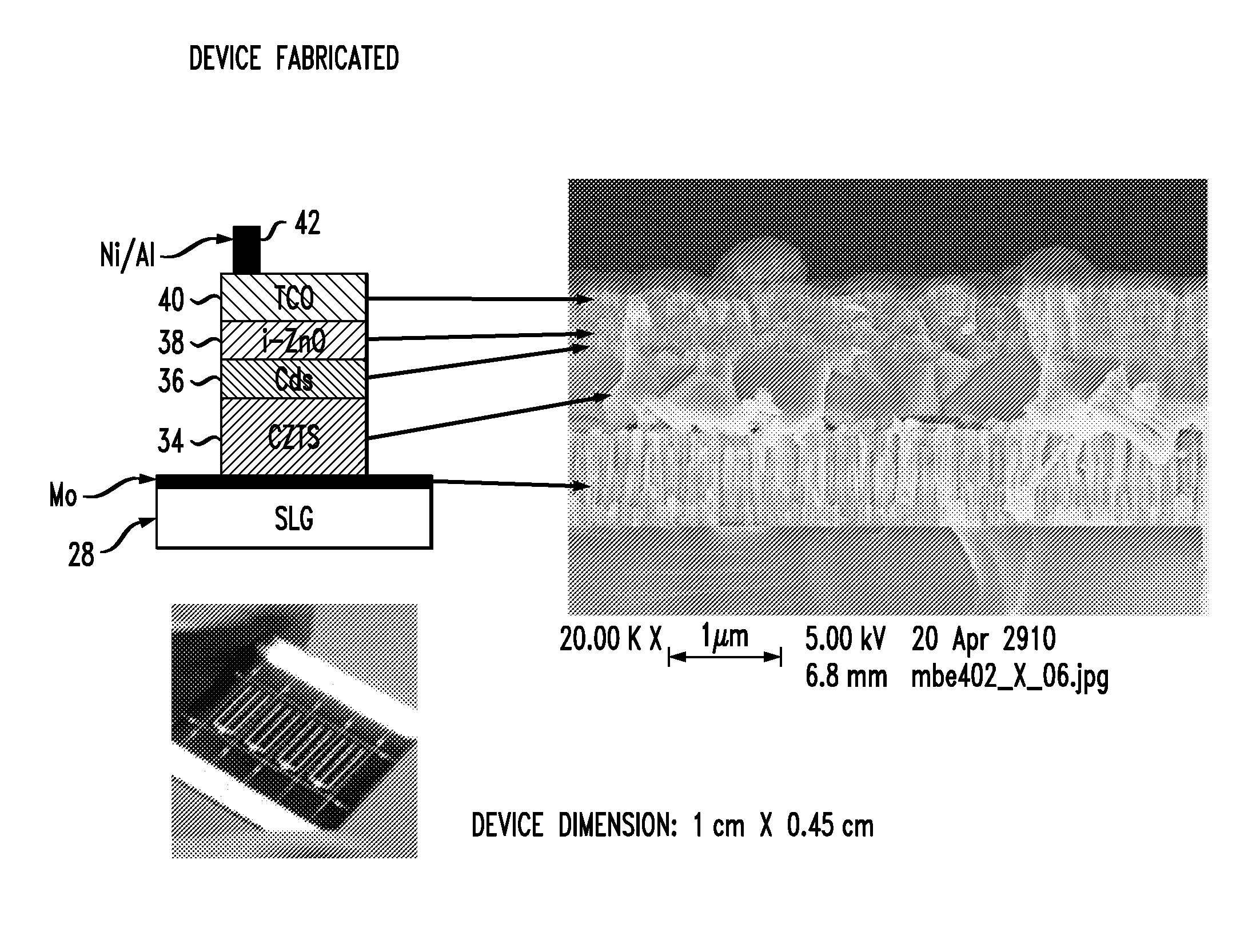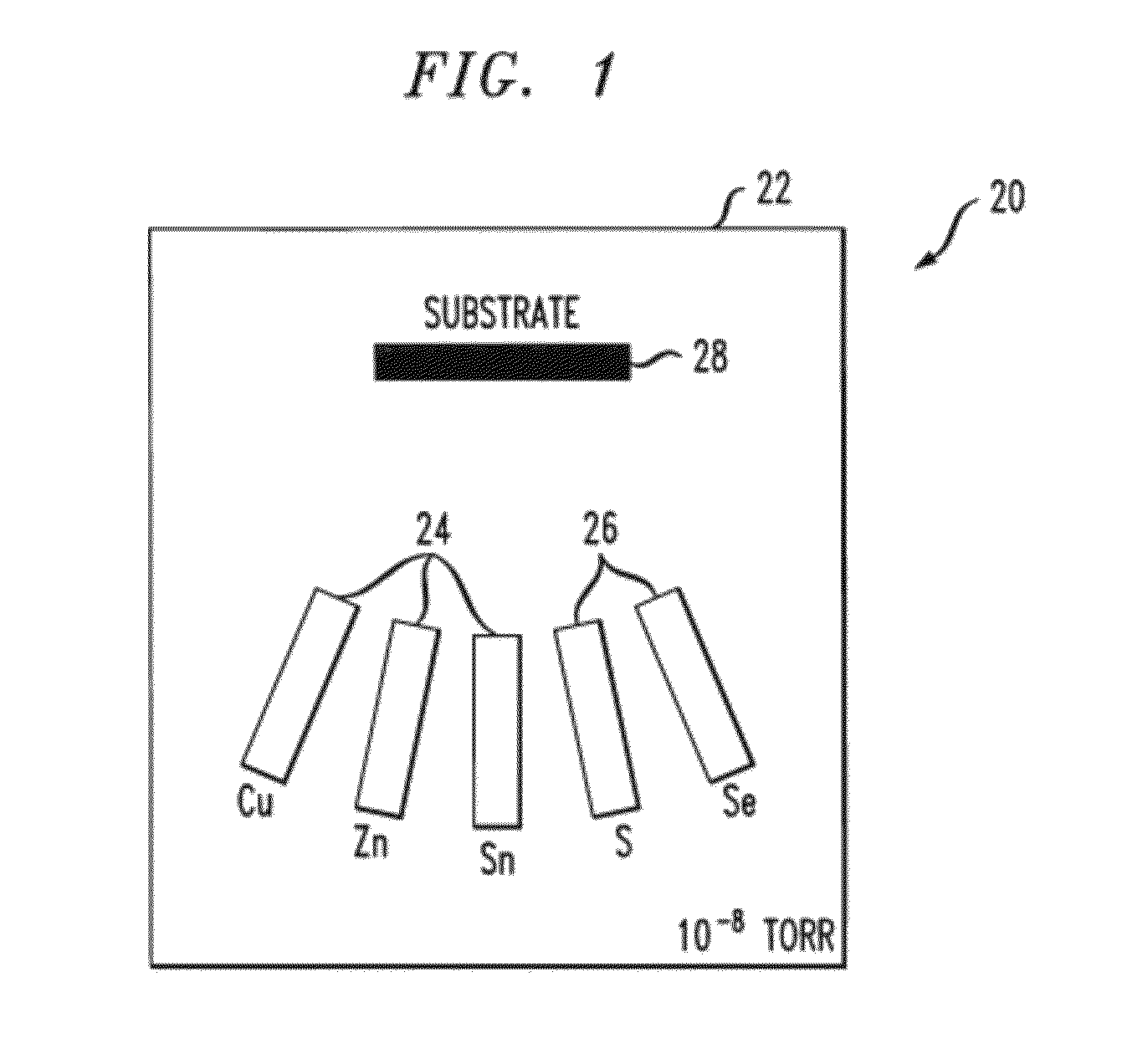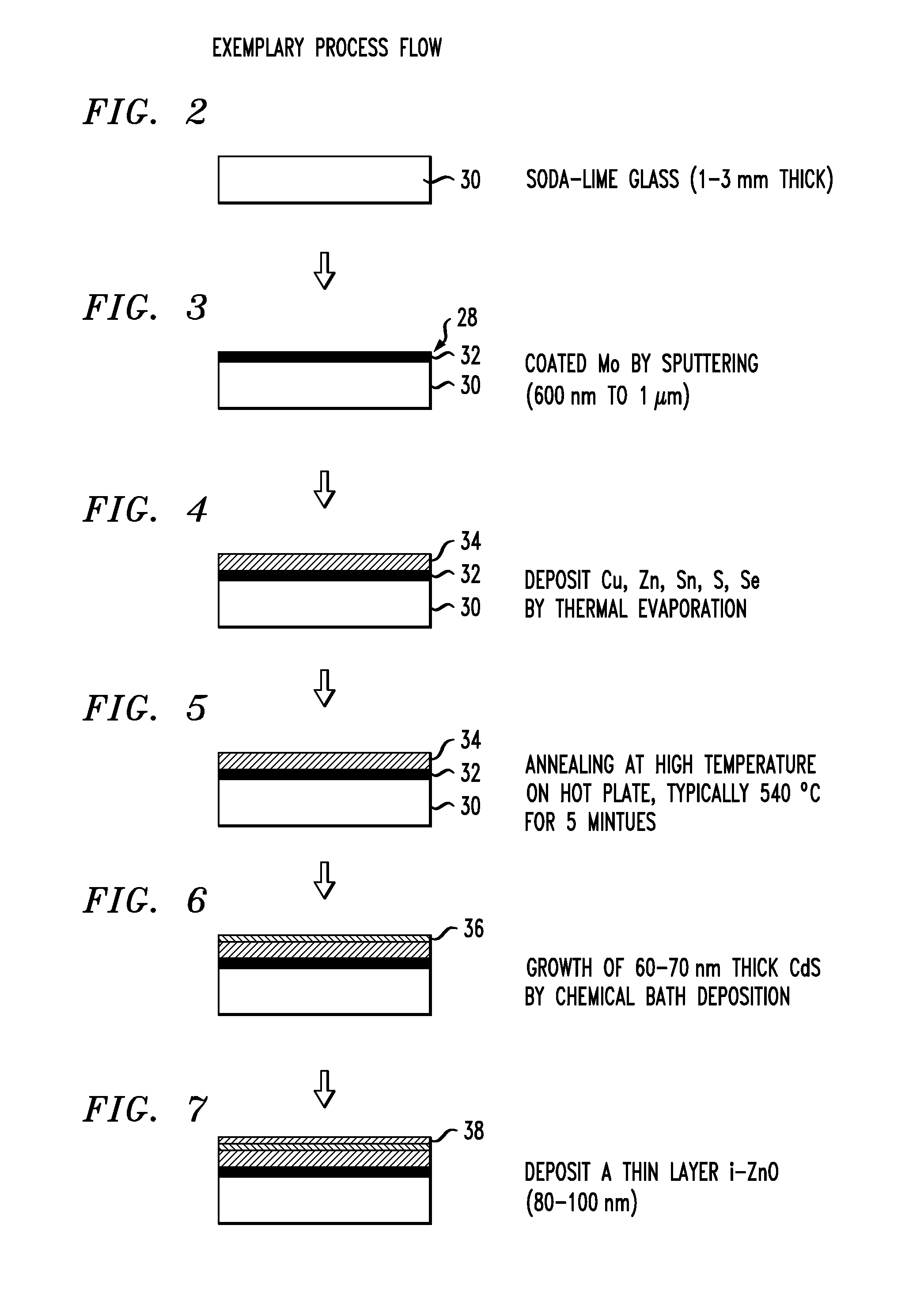Fabricating kesterite solar cells and parts thereof
- Summary
- Abstract
- Description
- Claims
- Application Information
AI Technical Summary
Benefits of technology
Method used
Image
Examples
Embodiment Construction
[0020]Kesterite, also known as Cu2ZnSnSxSe4-x, or CZTSSe, holds the promise of low-cost, renewable solar cells since all the elements used are inexpensive and earth-abundant. Unlike CIGS absorbers, which require the relatively expensive elements indium and gallium, zinc and tin are readily available at reasonable prices, kesterite films have been deposited by various techniques, including thermal evaporation, solution processes, electroplating, sputtering, and the like. Solution processes can require hydrazine which is both explosive and toxic. Sputtering techniques and electroplating typically involve the deposit of Cu / Zn / Sn alloy followed by annealing with H2S or S for more than two hours.
[0021]Most fabrication flows require high temperature annealing (>500° C.) to grow large grains for the kesterite absorber layer. Commonly used methods for high temperature annealing include annealing in a furnace with flowing H2S gas, and annealing inside a sealed tube with sufficient S vapor pr...
PUM
 Login to View More
Login to View More Abstract
Description
Claims
Application Information
 Login to View More
Login to View More - R&D
- Intellectual Property
- Life Sciences
- Materials
- Tech Scout
- Unparalleled Data Quality
- Higher Quality Content
- 60% Fewer Hallucinations
Browse by: Latest US Patents, China's latest patents, Technical Efficacy Thesaurus, Application Domain, Technology Topic, Popular Technical Reports.
© 2025 PatSnap. All rights reserved.Legal|Privacy policy|Modern Slavery Act Transparency Statement|Sitemap|About US| Contact US: help@patsnap.com



